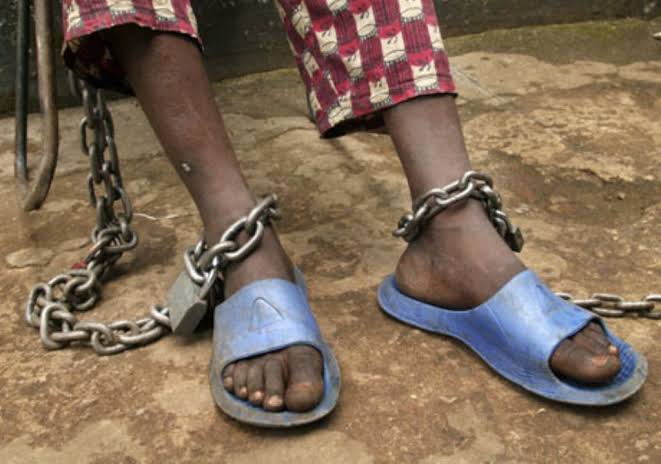Thousands of people with mental health conditions are held in chains in institutions across Nigeria, Human Rights Watch said in a report published on Monday in which it urged the government to ban the practice.
The findings come as authorities have taken action against informal Islamic schools and rehabilitation centres whose inmates have been subjected to widespread physical abuse with many held in chains. Some 1,500 people have been freed in raids since late September.
Human Rights Watch (HRW) said its researchers visited 28 mental health facilities in Nigeria’s capital and 8 of the country’s 36 states, between August 2018 and September 2019 during which interviews were conducted with 124 people.
The researchers found many people were shackled with iron chains, around one or both ankles, to heavy objects or to other detainees. This was happening in a range of institutions including federal psychiatric hospitals, state hospitals and state-owned rehabilitation centres, churches and Islamic centres.
HRW said staff chained adults and children in 27 out of 28 facilities visited. Some people were chained for a few days at a time as punishment, or for weeks or months to prevent them from moving or leaving.
It said the youngest person chained was a 10-year-old boy and the oldest was an 86-year-old man who had a visual disability.
Some people had been held for months or years, often in overcrowded and unhygienic conditions, the researchers found.
The Nigerian government should “completely ban chaining”, HRW said, adding that it should “urgently investigate all state and private institutions where people with mental health conditions live … with the goal of stopping chaining and ending abuses”.
A spokesman for the ministry of health did no immediately respond to phone calls and text messages seeking comment.




